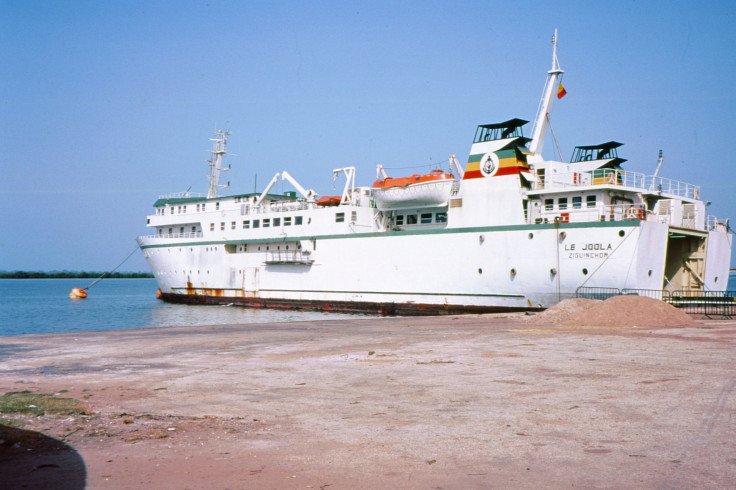The Sinking Of Africa’s ‘Titanic’: Ten Years Later

Ten years ago, a Senegalese ferry sank off the coast of the west African nation of Gambia, killing 1,863 people, making it one of the worst maritime disasters in history. (Other estimates of casualties run as high as 2,133).
The Joola passenger ferry, overcrowded with many women and children, went down during a violent storm on Sept. 26, 2002.
By comparison, the sinking of the Titanic in 1912 (the most famous of all such catastrophes) led to the deaths of some 1,530 people.
Designed to hold only about 580 people, the Joola carried more than 2,000 passengers and crew when it departed from Ziguinchor in southern Senegal (the country is bizarrely bisected by Gambia) for Dakar, the capital.
Only 64 people were rescued, primarily by local fishermen.
A survivor named Cheikh Niang described his experience on the Joola to the Le Matin newspaper of Dakar at the time: "There was a torrential downpour. ... Then we saw the boat was tilting to the left. ... Within three minutes the boat had turned over and there was a huge flood. The sea was really choppy and cold. I managed to get a life-jacket for myself and find one for someone else who had called out for help."
About 500 bodies that were never identified were buried in mass graves. At least another 1,000 passengers (many of them children) remain at the bottom of the sea where the ship still lies.
On Wednesday, Senegal’s new Prime Minister, Abdoul Mbaye, laid a wreath of flowers to remember the deceased in Memory Square in Dakar.
Relatives of the victims gathered in cemeteries this week across Senegal to mourn the deaths of their loved ones and to criticize the government’s failures in responding to their pleas over the disaster.
They want the government to dredge the ship’s remains up to the surface so that a full identification of the dead may be conducted.
"Ten years later, the pain is still there, even more because many things have never been done," Maimouna Badji, whose parents died in the Joola, told Agence France Presse.
"We wanted the ferry to be raised ... (to) see the final resting place of the people we loved. But nothing has been done yet. We have nothing but this to remember.”
The dead also include nationals from Cameroon, Guinea, Ghana, Nigeria, France, Spain, Norway, Belgium, Lebanon, Switzerland and the Netherlands.
The Dakar government has also been asked by the victims' families to provide money for those who were orphaned by the sinking and to put maritime officials on trial to uncover their culpability.
A number of government ministers and senior military figures were fired over the Joola incident but were never prosecuted. Thus far, the Dakar government has put the blame for the sinking solely on the ship’s captain, who perished.
"We're still waiting on the Senegalese courts," a survivor named Malang Badji told the AFP.
Idrissa Diallo, who lost his three sons in the sinking, declared to the BBC: "I am not angry that my sons died; that was God's will. I am angry at the way the aftermath of the shipwreck was handled."
Diallo now serves as the head of an organization of victims’ families seeking redress from the government.
"I was in the United States visiting family when I received a phone call from Ziguinchor early in the morning telling me the Joola had sunk and that no children had survived,” he recalled the harrowing events of 10 years ago.
"My three sons [aged eight, 13 and 15] were on it, they were returning from a visit to their grandmother in [province of] Casamance, where my family is from."
Diallo added: "How can I say I have grieved when I have not found my children's bodies -- when it took me a long time to even believe they were dead? And the government refuses to even talk about it.”
With Senegal having recently elected a new president, Macky Sall, hopes are high that the government will finally respond to the families' pleas.
"We will find a way to reopen the case, now that the previous government is no longer there to block justice," Diallo added.
"I am hopeful that this new government will listen to us. I told the prime minister [Mbaye] a catastrophe can be useful to a country, if it is recognized for what it is."
© Copyright IBTimes 2024. All rights reserved.











